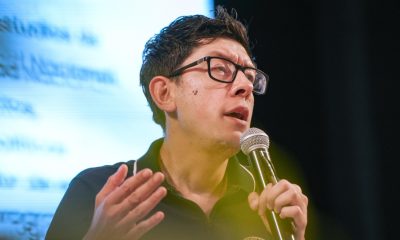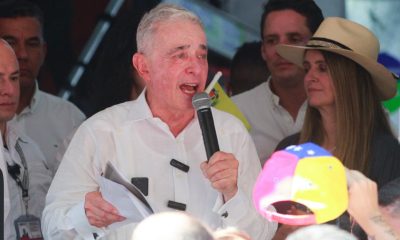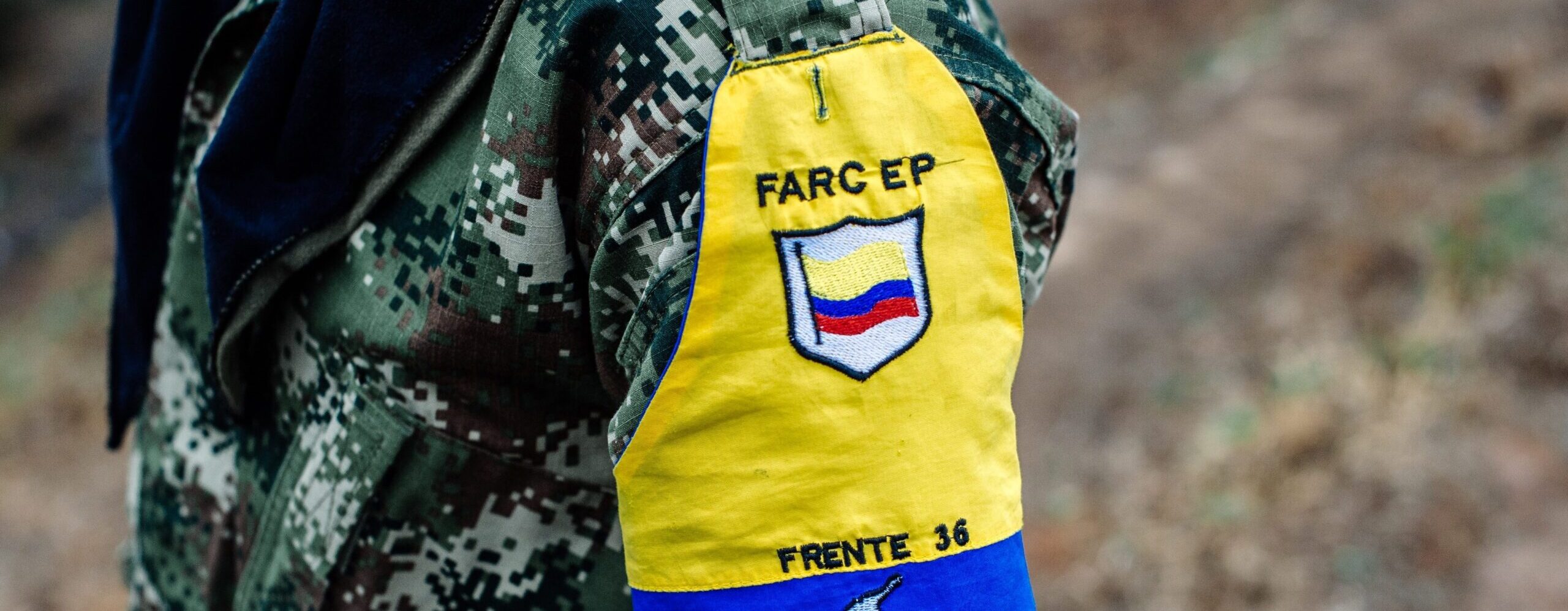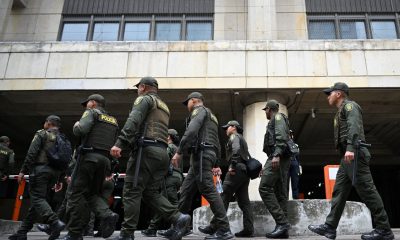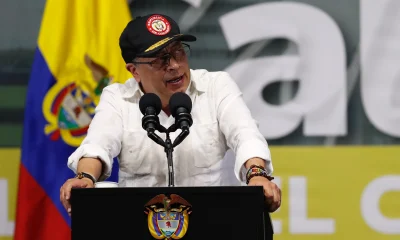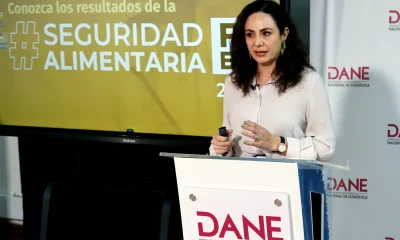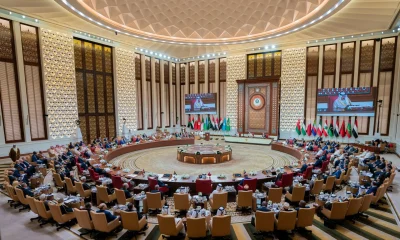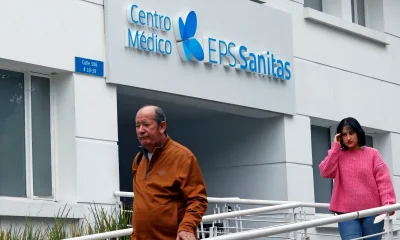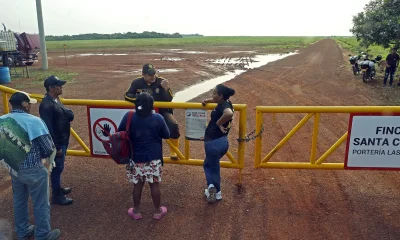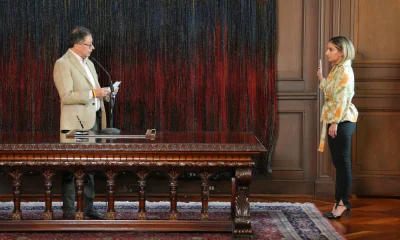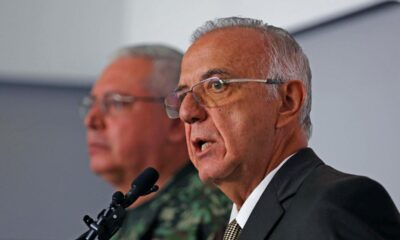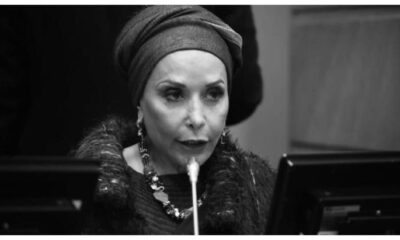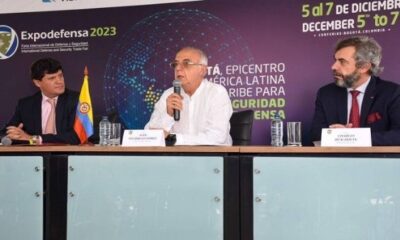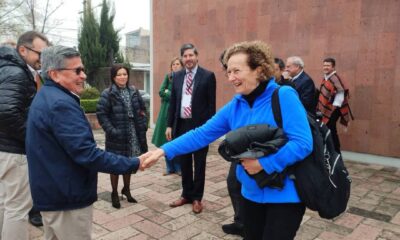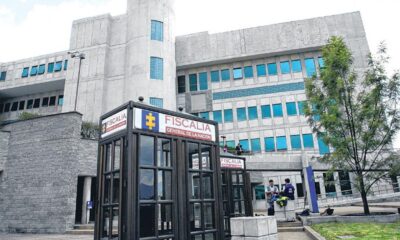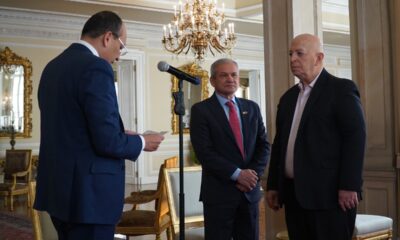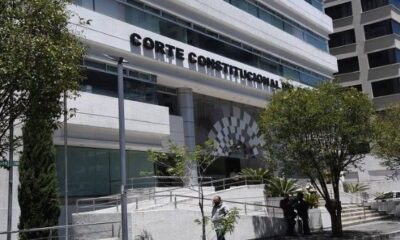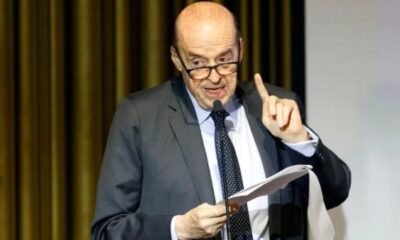International
Javier Acosta dies after euthanasia in Colombia, sparking renewed euthanasia debate
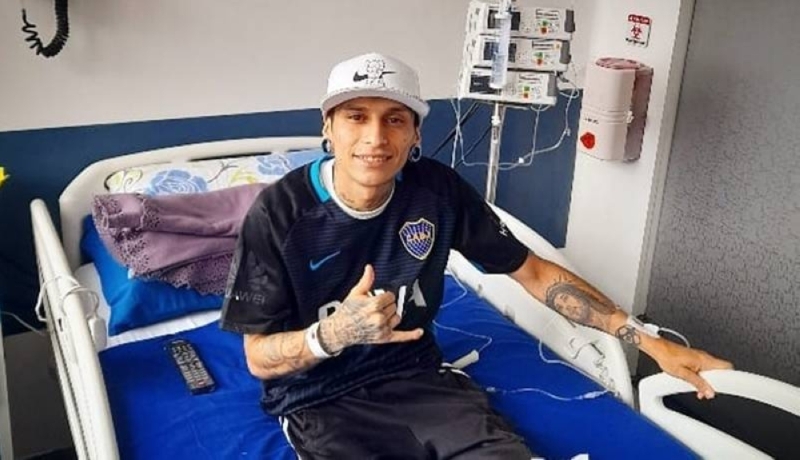
On Friday noon, Javier Acosta, 36, passed away after receiving euthanasia at a university hospital in San Ignacio, Bogotá, Colombia. He had been diagnosed with osteomyelitis and blood cancer.
His case shocked the entire nation and those who followed his story on social media after he decided to end his life. The decision came as medications ceased to be effective and doctors ruled out the possibility of walking again or improving his condition.
“I’ve been hospitalized for a month; I discovered a severe bacteria that I’ve been treating for about six years, called osteomyelitis. This bacteria has left me in a bad state,” Javier explained on August 21, during a live broadcast on his Facebook profile, Javier Acosta PK. In the video, he did not explicitly mention his decision to undergo euthanasia but hinted at it. “After crying so much and talking with God, I have no tears left. It’s hard, it’s sad,” he said while describing his suffering.
“I’ve been fighting to save myself, my body, my skin, my bones. Unfortunately, the bacteria came back… The bacteria is like the iPhone, 13, 14, 15, pro, pro max. This bacteria is in re pro max. I’m on three antibiotics,” he said, showing the intravenous antibiotics in his video and expressing that despite the three strong medications, he still had fevers and poor culture results. “I don’t have much hope of continuing to live; it sounds harsh, and I’m recounting it very coldly, but it’s the truth. Life turns out this way.”
Colombian media reported that Javier Acosta died at 12:47 PM on August 30, after being induced into a coma and then undergoing euthanasia. Javier was a fan of the Millonarios football team, and his wheelchair condition was a result of an accident related to his support for the team. A group of supporters gathered in front of San Ignacio Hospital at noon on Friday to show their support for Javier and his family.
Javier Acosta’s case has reignited the euthanasia debate. Although euthanasia is legal in Colombia, many tried to persuade him to reconsider his decision through social media.
On August 28, Javier received a call from Radamel Falcao García, who learned about his case and offered words of encouragement. “Thank you, Tiger, for praying for me, for calling me, and for saying so many beautiful things about my life… you know the promise, first goal dedicated to Javi PK…” Javier wrote in a Facebook post where he shared part of the call.
According to Infobae, in Colombia, euthanasia is permitted in specific cases of terminal illness where the patient suffers from unbearable physical or psychological pain that cannot be alleviated by other means. Javier had said that even morphine did not relieve his pain.
International
Thousands rally nationwide against Trump’s threat to U.S. democracy

Thousands of protesters gathered on Saturday (April 19, 2025) in major cities like New York and Washington, as well as in small communities across the United States, in a second wave of demonstrations against President Donald Trump. The crowds denounced what they view as growing threats to the country’s democratic ideals.
In New York City, demonstrators of all ages rallied in front of the Public Library near Trump Tower, holding signs accusing the president of undermining democratic institutions and judicial independence.
Many protesters also criticized Trump’s hardline immigration policies, including mass deportations and raids targeting undocumented migrants.
“Democracy is in grave danger,” said Kathy Valyi, 73, the daughter of Holocaust survivors. She told AFP that the stories her parents shared about Adolf Hitler’s rise to power in 1930s Germany “are happening here now.”
In Washington, demonstrators voiced concern over what they see as Trump’s disregard for long-standing constitutional norms, such as the right to due process.
International
ACLU seeks emergency court order to stop venezuelan deportations under Wartime Law

The American Civil Liberties Union (ACLU) on Friday asked two federal judges to block the U.S. government under President Donald Trump from deporting any Venezuelan nationals detained in North Texas under a rarely used 18th-century wartime law, arguing that immigration officials appear to be moving forward with deportations despite Supreme Court-imposed limitations.
The ACLU has already filed lawsuits to stop the deportation of two Venezuelan men held at the Bluebonnet Detention Center, challenging the application of the Alien Enemies Act of 1798. The organization is now seeking a broader court order that would prevent the deportation of any immigrant in the region under that law.
In an emergency filing early Friday, the ACLU warned that immigration authorities were accusing other Venezuelan detainees of being members of the Tren de Aragua, a transnational criminal gang. These accusations, the ACLU argues, are being used to justify deportations under the wartime statute.
The Alien Enemies Act has only been invoked three times in U.S. history — most notably during World War II to detain Japanese-American civilians in internment camps. The Trump administration has claimed the law allows them to swiftly remove individuals identified as gang members, regardless of their immigration status.
The ACLU, together with Democracy Forward, filed legal actions aiming to suspend all deportations carried out under the law. Although the U.S. Supreme Court recently allowed deportations to resume, it unanimously ruled that they could only proceed if detainees are given a chance to present their cases in court and are granted “a reasonable amount of time” to challenge their pending removal.
International
Dominican ‘False Hero’ Arrested for Faking Role in Nightclub Collapse That Killed 231

A man identified as Rafael Rosario Mota falsely claimed to have rescued 12 people from the collapse of the Jet Set nightclub in Santo Domingo—a tragedy that left 231 people dead—but he was never at the scene.
Intelligence agents in the Dominican Republic arrested the 32-year-old man for pretending to be a hero who saved lives during the catastrophic incident, authorities announced.
Rosario Mota had been charging for media interviews in which he falsely claimed to have pulled survivors from the rubble after the nightclub’s roof collapsed in the early hours of April 8, during a concert by merengue singer Rubby Pérez, who was among those killed.
“He was never at the scene of the tragedy,” the police stated. The arrest took place just after he finished another interview on a digital platform, where he repeated his fabricated story in exchange for money as part of a “media tour” filled with manipulated information and invented testimonies.
“False hero!” read a message shared on the police force’s Instagram account alongside a short video of the suspect, in which he apologized: “I did it because I was paid. I ask forgiveness from the public and the authorities.”
-

 Central America5 days ago
Central America5 days agoPetro questions Ecuador’s vote, cites reports of military control and arrests
-

 International4 days ago
International4 days agoArsenal stun Real Madrid at the Bernabéu to reach Champions League semifinals
-

 International3 days ago
International3 days agoDominican ‘False Hero’ Arrested for Faking Role in Nightclub Collapse That Killed 231
-

 Central America3 days ago
Central America3 days agoNicaraguan Exiles to Mark 7th Anniversary of 2018 Protests with Global Commemorations
-

 International4 days ago
International4 days agoBogotá residents line up for yellow fever vaccine amid national alert
-

 International2 days ago
International2 days agoACLU seeks emergency court order to stop venezuelan deportations under Wartime Law
-

 International4 days ago
International4 days agoDeSantis’ immigration crackdown sparks alarm in Venezuelan Communities in Doral
-

 Central America2 days ago
Central America2 days agoUN complaint filed against Costa Rica over detention of migrant children
-

 International4 days ago
International4 days agoMexico refuses to restore ties with Ecuador while Noboa remains in office
-

 International15 hours ago
International15 hours agoThousands rally nationwide against Trump’s threat to U.S. democracy
-

 International5 days ago
International5 days agoColombia: Search continues for missing limb of italian scientist found dismembered


















